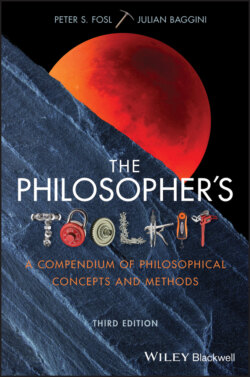Читать книгу The Philosopher's Toolkit - Julian Baggini, Julian Baggini - Страница 48
Poetic, religious, or philosophical inconsistency?
ОглавлениеThe Danish existentialist philosopher Søren Kierkegaard (1813–55) maintained that the Christian notion of the incarnation (‘Jesus is God, and Jesus was a man’) is a paradox, a contradiction, an affront to reason, but nevertheless true (7.6). Many Christians simply hold the idea to be a difficult mystery.
That kind of difficulty, however, may extend farther than religious contexts. Atheist existentialist philosopher Albert Camus (1913–60) maintained that there is something fundamentally ‘absurd’ (perhaps inconsistent?) about human existence. Post‐structuralist philosopher Jacques Derrida’s theory of différance raises metaphysical questions about the consistency of reality (6.2). Philosophical fiction and poetry may enlist rhetorical strategies involving inconsistency (7.4). Dialetheists and others have even challenged the idea that consistency is fundamental to logic (3.10). Perhaps, then, Emerson was right, and there are contexts in which inconsistency and absurdity paradoxically make sense.
